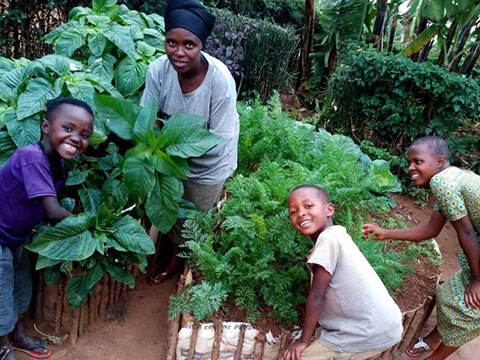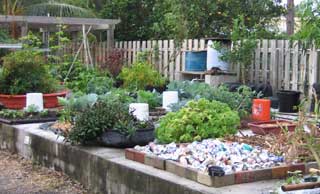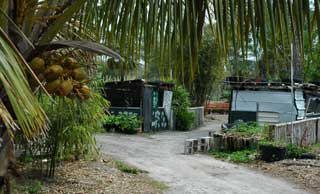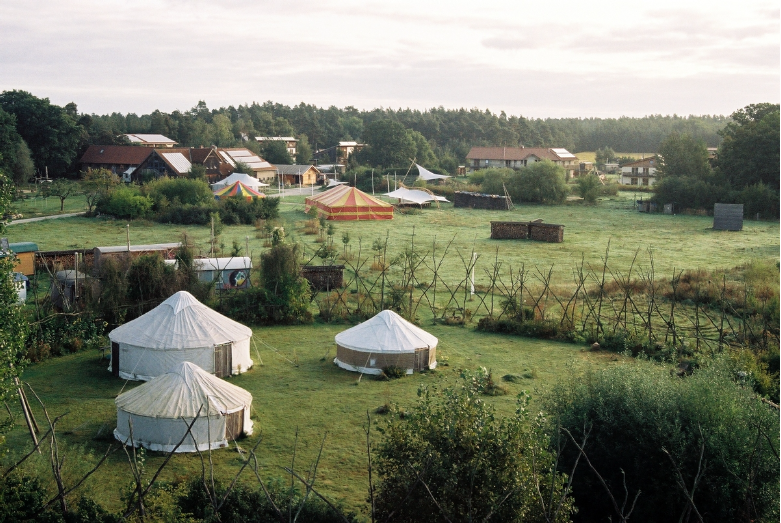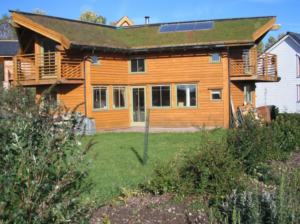
Eco-villages represent a visionary approach to community living, grounded in the principles of sustainability, self-sufficiency, and cooperation. These intentional communities are designed to minimize environmental impact while maximizing social harmony and personal well-being. By integrating green building, renewable energy, and sustainable practices, eco-villages offer a model for living that aligns closely with the earth’s ecological capacities.
Understanding Eco-Villages
An eco-village is more than just a place to live; it’s a movement towards creating sustainable, self-reliant communities that respect ecological balance and foster a strong sense of belonging and purpose among its residents.
Key Features of Sustainable Community Living
Eco-villages are characterized by their holistic approach to sustainability, which includes the use of green building materials, renewable energy sources like solar and wind power, and the implementation of organic farming and water conservation techniques.
Living in an eco-village offers numerous benefits, from reducing one’s ecological footprint to enhancing social connections and mental health. These communities are built on the principles of cooperation, shared responsibility, and mutual support, creating a strong, interconnected social fabric.
Environmental and Social Impact
Eco-villages are living proof that low-impact living is feasible and fulfilling. By significantly reducing waste, conserving water, and using renewable energy, these communities have a minimal ecological footprint.
One of the most compelling aspects of eco-village life is the deep sense of community and belonging it fosters. Eco-villages are designed to encourage interaction, collaboration, and mutual support, offering a strong antidote to the isolation and disconnection faced in modern society.
How to Get Involved with Eco-Villages
For those inspired by the eco-village model, there are many ways to get involved. Whether it’s joining an existing community, participating in workshops and seminars, or even starting a new eco-village, opportunities abound for those committed to sustainable living.
Finding and Joining an Eco-Village
The journey to becoming part of an eco-village starts with research. Many online directories and networks connect individuals with eco-villages globally. Visiting an eco-village, attending open days, or participating in short-term programs can provide invaluable insights into community life and help determine if it’s the right fit for you.
Getting involved with eco-villages isn’t limited to living in one. You can contribute by volunteering, donating, or sharing knowledge on sustainable practices. Additionally, advocating for eco-villages and sustainable living in your own community can help spread the movement’s principles and ideals.
Conclusion
The rise of eco-villages reflects a growing recognition of the need for sustainable, community-oriented living. As more people seek alternatives to the environmental degradation and social isolation characteristic of modern life, eco-villages offer a promising path forward. By embodying principles of sustainability, resilience, and cooperation, eco-villages not only provide a viable model for living in harmony with nature but also inspire a broader movement towards a more sustainable and interconnected world.
Whether you’re drawn to the eco-village movement by a desire to live more sustainably, a yearning for deeper community connections, or a commitment to environmental activism, there are countless ways to engage. By exploring, supporting, or living in an eco-village, you become part of a global effort to reimagine our relationship with the planet and each other, one community at a time.
–
ECHO provides hope against hunger around the globe through agricultural training and resources. As a Christian technical networking and resourcing organization, ECHO builds a diverse, global network and serves that network by sharing validated contextualized agricultural options with technical excellence. ECHO’s goal is to serve its network members to advance food security and sustainable livelihoods. ECHO’s North American Regional Impact Center is located in Fort Myers, Florida with a global presence through four Regional Impact Centers in the USA, Thailand, Tanzania, and Burkina Faso. For more information about ECHO call 239-543-3246 or visit echonet.org or ECHOcommunity.org.
